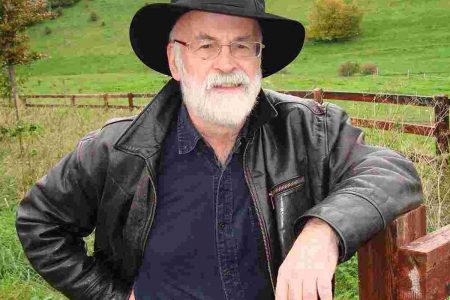I think I’ve gotten to know you well enough to share with you. Hope I’m not being too forward.
As a man, it is a biological imperative that I not cry as a result of watching a film. I do not know why this is so; perhaps it is because we are not supposed to show emotion, or it makes us appear weak, or crying is for girls, or because we are just heartless bastards.
As I have gotten older, I’ve noticed a subtle shift in my emotional response to movies, and I’m not afraid to discuss this openly. When I was young, the concept of tears due to visual storytelling was absurd. The whole point of films is to be entertained, to be excited, to laugh, to be thrilled, to be dazzled … and to be quiet for two hours to give your mum and dad some peace and quiet. There was no reason to cry at a film because you would be unable to understand the depths of emotion felt by the actors and the story line at a young age, where the greatest heartache you had survived was not getting the fully operational Millennium Falcon with the complement of Star Wars figures. Anyway, you didn’t watch those sort of films – emotional films were for girls.
It was when I moved away to university, and began to mature into the human being I am now (and will hopefully become when I completely grow up) that I began to notice that I could connect emotionally to a film. For me, the first film to do more than entertain was Dead Poets Society. When Ethan Hawke, an actor who now mostly manages to elicit the emotion of annoyance, on learning of the fate of his beloved teacher, stands on his desk and shouts, ‘O captain, my captain’, and is joined by other students (not on the same desk, obviously, as it would’ve been too small), I was extremely worried by the strange sensation in my throat, as if I couldn’t swallow properly. I gulped, in order to correct the unusual biological phenomenon, shook my head as if it would evacuate the bizarre sensations behind my eyes, sniffed as if clearing my nose, and tried not to give it a second thought. It was only a few years later, while watching the film on television in the privacy of my bedroom, that the tears came to my face fully formed, and I let myself go to the emotion that the film had so adroitly created. After that, there was no turning back.
There have been other films subsequently, where I could not control the ocular leakage that I could not have imagined as a teenager. Some have been ‘chick flicks’, romantic comedies where you know you are being emotionally manipulated but concede victory to an above average film-maker. Recently, it was Love Actually, not a great film by any means; however, it was funny when it was supposed to be, and romantic when it was supposed to be (even though it was a bit muddled in places, lost its way for a bit in the middle, and ignored some storylines at the end) and emotionally resonant in the hands of Emma Thompson, whose quiet and attempt-at-control of the reaction when discovering her husband is being unfaithful was moving beyond words, so I let tears do my talking.
However, while ‘girls films’ seem to have crying as a desired affect (something I always found a little bizarre, personally, as crying isn’t particularly pleasant, what with the puffy eyes, the snotty nose, and the drying out of the mouth) and girls seem to be in on the fact – I’ll never forget sitting behind two girls at a showing of Ghost (I was only there because of my girlfriend of the time) who were passing a box of tissues they had brought with them specially for the film; talk about being prepared – films that affect me similarly don’t appear to be in the same vein.
Witness the end of two film epics of recent years – The Return of the King and The Last Samurai. Big, male-dominated movies about war, sacrifice, honour, loyalty, and with lots of fighting with swords and stuff. Not exactly what you would call eye-moistening material. But, at the end of both, tears sprung freely down my cheeks: in Return of the King, the moment where the newly crowned Aragorn says to the Hobbits, ‘No, it is we who should bow to you’, and then he and everyone else bows to them; and The Last Samurai, where Tom Cruise’s character confronts the Emperor with the sword of leader of the samurai rebels (and former teacher to the Emperor) and the Emperor realises the enormity of what has happened and the sacrifice involved. The ability to make men cry in movies about myth and legend is quite impressive, in my opinion, and I am quite pleased that I was able to be moved to such a degree.
The film where tears came mostly freely, however, was also at the most inopportune. I was at a preview screening for Good Will Hunting at a screen in London to review it for my student paper. When Robin Williams, as the psychologist counselling Matt Damon as the tortured genius, Will Hunting, keeps repeating to him, ‘It’s not your fault’, causing Will to breakdown and cry for the first time, I was blubbing like a little child who had grazed their knee. Tears poured down my face, as I empathised and related to the scene on the screen (what with me being a tortured genius who can’t emotionally connect with people, obviously), not caring that I was supposed to be the calm and collected critic. Fortunately, I was able to clean myself up before anyone saw me, but I knew then that I had made the transition from being a totally heartless man, to being still mostly heartless, but with the ability to be moved to tears by quality drama, which my girlfriend seems to like. And I don’t mind a bit.




